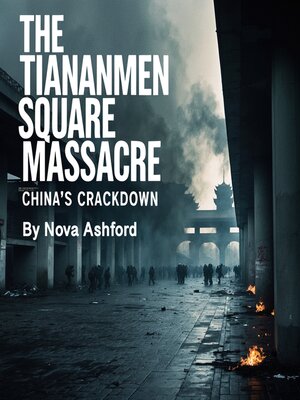
Sign up to save your library
With an OverDrive account, you can save your favorite libraries for at-a-glance information about availability. Find out more about OverDrive accounts.
Find this title in Libby, the library reading app by OverDrive.



Search for a digital library with this title
Title found at these libraries:
| Library Name | Distance |
|---|---|
| Loading... |
This audiobook is narrated by a digital voice.
The Tiananmen Square Massacre, one of the most significant events in modern Chinese history, was not a spontaneous eruption of violence, but rather the culmination of years of political, economic, and social pressures that had been building within the country. The roots of the protests trace back to a combination of rising discontent over economic reforms, increasing corruption within the Communist Party, and a growing desire for greater political freedoms. While the Tiananmen Square protests are often remembered for the tragic and brutal crackdown, it is important to understand the context that led up to the moment of violence.
In the early 1980s, China was undergoing significant changes. Under the leadership of Deng Xiaoping, the country began to shift away from the rigid, centrally-planned economy of the past toward a more market-oriented model. This shift, known as "Reform and Opening," led to rapid economic growth but also deepened the inequalities within Chinese society. The urban working class, farmers, and intellectuals, especially the youth, began to feel the effects of inflation, corruption, and growing unemployment. Many felt that the promises of a more prosperous and equal society had not been fully realized, and that those in power were benefitting disproportionately from the country's economic boom.
At the same time, the political environment was becoming more open to reform. The death of Hu Yaobang, a former General Secretary of the Communist Party, in April 1989 served as a catalyst for the protests. Hu was seen by many as a champion of reform, particularly among students and intellectuals, who admired his calls for greater political freedom and anti-corruption measures. His death, viewed by many as a result of the government's failure to address the issues he championed, led to an outpouring of grief and outrage. Thousands of students gathered in Tiananmen Square in Beijing to mourn Hu and demand political reforms.







